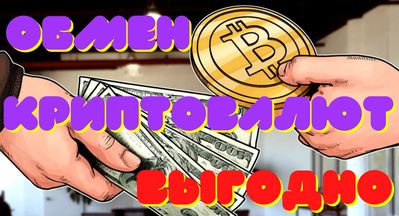South Korean Banks May Be in Trouble as Regulator Probes Kimchi Premium Bitcoin ‘Irregularities’

South Korean banks could find themselves in the firing line after the government, media outlets, and regulators stepped up the scrutiny of the banks’ role in enabling kimchi premium traders to make fast money when trading volumes rise.
As previously reported, regulators stepped in last month to warn banks about their failure to stop traders from buying tokens like bitcoin (BTC) overseas via wire transfers – which traders then sought to dump on domestic crypto exchanges for a hefty profit.
When BTC prices have risen in recent years, retail investors’ trading volumes have soared – historically leading to discrepancies of up to 50% between prices on domestic platforms like Upbit and global platforms like Binance.
Some opportunistic traders have sought to take advantage of such price gaps by buying BTC from over-the-counter vendors – primarily individuals based in Mainland China, Hong Kong, and Japan. South Korean authorities, which already impose strict regulations on foreign exchange trading, have equated such trading with money laundering – and have vowed to stamp it out.
Banks have since responded with overseas remittance caps, but concern has since arisen that – historically – some USD 3.4 billion worth of illegal foreign exchanges have been carried out in recent years. And the Financial Supervisory Service (FSS) last week said that all of this money may have passed through domestic banks.
The FSS initially identified what it thinks were “abnormal” foreign exchange transactions at both Woori and Shinhan, with prosecutors also looking at the evidence.
But per Energy Kyungjae, which quoted unnamed banking industry sources, the FSS has been aware of potential issues for over a year – and has previously warned most domestic banks about possible violations. The media outlet added that the regulator had repeated its warnings “several times” in 2021.
In addition to the aforementioned Woori and Shinhan, the regulator reportedly also issued private warnings to Kookmin Bank, KEB Hana Bank, and Nonghyup Bank. The FSS reportedly told all five banks “to be careful about arbitrage trading aimed at the kimchi premium” in 2021.
KEB Hana was fined for violating the terms of the Foreign Exchange Transactions Act this year after an internal audit revealed historical irregularities – possibly related in some cases to crypto – dating back to 2018.
Chosun, meanwhile, reported that the FSS was “expanding its initial investigation to the entire financial sector,” and claimed the regulator had conducted “on-site investigations.” The findings of these probes have been shared with the prosecution service, as well as the National Intelligence Service (NIS), and the Korea Customs Service.
The latter has previously enjoyed some success in tracking down kimchi premium traders.
However, digging deeper into the matter appears to have unearthed a network of suspicious-looking companies that some have suggested could have been used by overseas players to launder funds.
The Financial Intelligence Unit (FIU) has found details about “dozens of abnormal transactions” related to an unnamed company based in Daegu, as well as similar instances involving possible shell or “paper” companies based elsewhere in the country.
These companies appear to have conducted activities involving crypto via domestic exchanges – then converting their coins for fiat KRW before remitting money overseas.
Some have claimed that North Korea-linked individuals may be involved in the network.
But, per Yonhap, Kim Kyu-hyeon, the Director of the NIS, told the National Assembly Intelligence Committee that the investigation into the alleged illegal USD 3.4 billion worth of foreign exchange transactions “has not yet been completed.”
Meanwhile, the Financial Services Commission (FSC) will hold a landmark meeting with the heads of the country’s five biggest crypto exchanges later this month.
The FSC’s Chairman Kim Joo-hyun will personally attend the meeting, Seoul Kyungjae reported. Kim will listen to the exchanges’ proposals after the companies were asked to create a self-regulating body. The meeting will be significant as no FSC chief has previously held a direct meeting with industry leaders.
An unnamed industry insider was quoted as welcoming the news and stating: “The FSC seems to be more active in the cryptocurrency industry and market than it used to be.”







 Bitcoin
Bitcoin  Ethereum
Ethereum  Tether
Tether  Dogecoin
Dogecoin  USDC
USDC  Cardano
Cardano  TRON
TRON  Bitcoin Cash
Bitcoin Cash  Chainlink
Chainlink  Stellar
Stellar  LEO Token
LEO Token  Litecoin
Litecoin  Hedera
Hedera  Cronos
Cronos  Ethereum Classic
Ethereum Classic  Dai
Dai  Monero
Monero  Stacks
Stacks  OKB
OKB  Cosmos Hub
Cosmos Hub  Algorand
Algorand  Theta Network
Theta Network  Maker
Maker  KuCoin
KuCoin  Gate
Gate  Tezos
Tezos  Polygon
Polygon  NEO
NEO  Zcash
Zcash  Tether Gold
Tether Gold  IOTA
IOTA  Synthetix Network
Synthetix Network  Bitcoin Gold
Bitcoin Gold  TrueUSD
TrueUSD  Zilliqa
Zilliqa  Holo
Holo  0x Protocol
0x Protocol  Dash
Dash  Qtum
Qtum  Enjin Coin
Enjin Coin  Siacoin
Siacoin  Basic Attention
Basic Attention  Ravencoin
Ravencoin  Decred
Decred  Ontology
Ontology  NEM
NEM  DigiByte
DigiByte  Lisk
Lisk  Status
Status  Waves
Waves  Nano
Nano  Numeraire
Numeraire  Pax Dollar
Pax Dollar  Hive
Hive  Huobi
Huobi  Steem
Steem  BUSD
BUSD  Ren
Ren  OMG Network
OMG Network  Bitcoin Diamond
Bitcoin Diamond  Bytom
Bytom  Kyber Network Crystal Legacy
Kyber Network Crystal Legacy